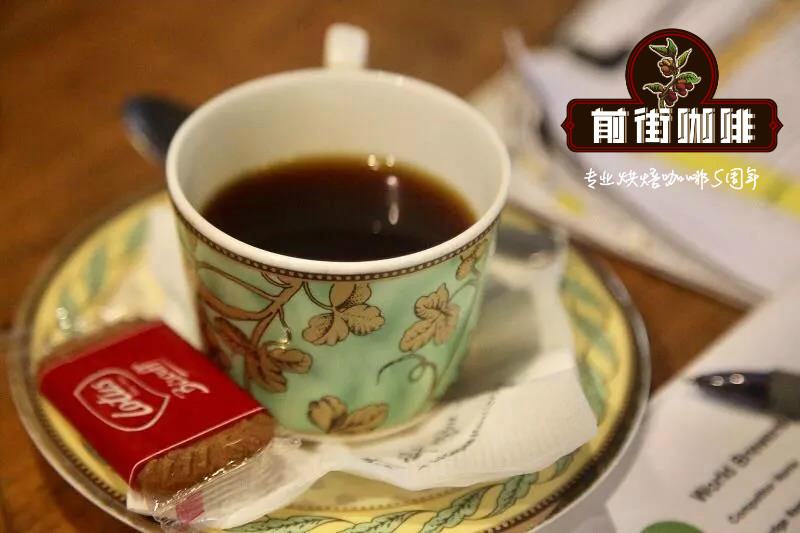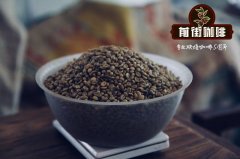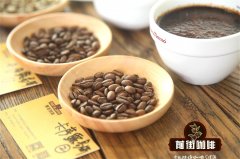What is Arabica coffee? Is all the good coffee Arabica coffee?

Professional coffee knowledge exchange more coffee bean information please follow the coffee workshop (Wechat official account cafe_style)
Coffee advertisements often emphasize that they use 100% Arabica coffee. Yes, in terms of price alone, Arabica is indeed more advanced, the average price of Arabica coffee beans is twice that of Robusta.
In terms of composition, Arabica has low caffeine (0.9-1.2%), 60% more fat and twice as much sugar, so taken together, Arabica tastes sweet and soft, with a plum-like sour taste.
In addition, Arabica has lower chlorogenic acid (5.5-8%), and chlorogenic acid is not only antioxidant, but also an important component of resistance to pests, so Arabica is more vulnerable to insects and climate, generally planted at higher elevations, bearing less fruit and slower. The fruit is oval.
At present, Brazil is the largest grower of Arabica, while Colombia produces only Arabica coffee. In fact, Arabica is the name of the coffee tree variety (species). "Coffea Arabica" and "Coffea Robusta" are two different coffee varieties, which currently account for the vast majority of coffee bean production in the world. There are three main differences between Arabica coffee and Robusta coffee: 1. Differences in planting conditions. two。 The flavor and characteristics are different. 3. The difference between market price and use. The planting conditions of "Arabica" coffee are relatively stringent, requiring higher elevations (6 to 2000 meters above sea level), fertile soil fertility, adequate moisture, proper sunshine conditions and shade. "Arabica" coffee species are less resistant to diseases and insect pests and are vulnerable to damage. In addition, the annual output of coffee trees per unit area is also lower. Arabica coffee has a varied and broad potential flavor. Arabica coffee produced in different regions, different elevations and different climates usually has its own characteristics and can show a completely different flavor. "Arabica" coffee smells like grass when it is not roasted. After proper roasting, it shows "fruity" (medium-light roasting) and "caramel sweetness" (deep roasting). Generally speaking, it has a better aroma and flavor than Robusta beans. High-quality Arabica coffee requires complicated manual picking, selection and meticulous processing, so the world's most expensive and best coffee beans are Arabica coffee.
Important Notice :
前街咖啡 FrontStreet Coffee has moved to new addredd:
FrontStreet Coffee Address: 315,Donghua East Road,GuangZhou
Tel:020 38364473
- Prev

Is caffeine the source of coffee bitterness? The bitterness of coffee comes from roasting
For more information on coffee beans, please follow the coffee workshop (official Wechat account cafe_style). Everyone thinks that caffeine is the reason for the bitter taste of coffee, but in fact, caffeine accounts for only 10% of the bitter ingredients. As we said earlier, the concentration of caffeine in roasted beans is not affected by the degree of roasting, and decaf also tastes bitter, so we
- Next

What is the practice of scratch eggnog scratch eggnog Coffee shaving eggnog Coffee will be fishy
Professional coffee knowledge exchange more coffee bean information please follow the coffee workshop (Wechat official account cafe_style) scratch eggnog Coffee Noggy&Nice can not find an acceptable way to combine them, this is our tribute to eggnog lattes. Since our eggnog is made from scratch, we find it best to highlight it separately. We filmed me brilliantly.
Related
- Beginners will see the "Coffee pull flower" guide!
- What is the difference between ice blog purified milk and ordinary milk coffee?
- Why is the Philippines the largest producer of crops in Liberia?
- For coffee extraction, should the fine powder be retained?
- How does extracted espresso fill pressed powder? How much strength does it take to press the powder?
- How to make jasmine cold extract coffee? Is the jasmine + latte good?
- Will this little toy really make the coffee taste better? How does Lily Drip affect coffee extraction?
- Will the action of slapping the filter cup also affect coffee extraction?
- What's the difference between powder-to-water ratio and powder-to-liquid ratio?
- What is the Ethiopian local species? What does it have to do with Heirloom native species?

